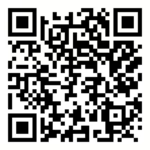In today’s fast-paced, career-driven world, it’s common for individuals to closely associate their self-worth with their job titles. While professional success is undoubtedly important, intertwining your identity with your career can lead to several negative consequences, including an increased risk of identity crises, stress, burnout, and even a detrimental impact on your aging process. This article explores the importance of distinguishing your job title from your personal identity and how neglecting this distinction can affect your longevity and overall well-being.

The Risks of Over-Identification with Work
When your identity is heavily tied to your job, any changes in your career can lead to feelings of loss and uncertainty. This over-reliance on professional roles for self-definition can result in an identity crisis if you lose your job or decide to change careers. Our founder Rui da Silva, emphasizes that “your work isn’t who you are; it’s just what you do.” This mindset is crucial for maintaining a healthy and balanced life.
Moreover, prioritizing work over personal relationships can lead to isolation and strained connections with family and friends. This imbalance can exacerbate stress and contribute to burnout, as personal support networks are essential for emotional resilience. Engaging in activities unrelated to work and nurturing relationships outside the workplace can help mitigate these risks.
The Impact on Longevity and Aging
Neglecting aspects of your identity beyond work can have profound effects on your aging process. Internalized ageism, for instance, can lead to limiting healthy behaviors or engaging in risky ones due to negative perceptions of aging. When your sense of self is overly tied to your job, you may overlook essential habits that contribute to longevity, such as regular exercise, balanced nutrition, and stress management. These habits are crucial for maintaining physical and mental health as you age.
Furthermore, chronic stress and burnout can accelerate the aging process by weakening the immune system, increasing inflammation, and affecting cognitive function. Engaging in hobbies and interests outside of work not only helps reduce stress but also fosters a sense of purpose and fulfillment, which are vital for maintaining a healthy and active lifestyle.
Ordinary Habits and Identity
Our ordinary habits play a significant role in shaping our identity beyond our job titles. Engaging in activities that bring joy and fulfillment outside of work helps to build a more comprehensive sense of self. Whether it’s reading, cooking, or volunteering, these hobbies provide opportunities for personal growth and social interaction, which are essential for mental health and well-being.
Moreover, these activities can help you develop transferable skills that are valuable in both personal and professional contexts. For example, leadership skills learned through volunteering can enhance your career prospects, while creative pursuits like painting or writing can improve cognitive flexibility and problem-solving abilities.
Mitigating the Risks
To avoid the pitfalls of over-identification with work and promote a healthier aging process, consider the following strategies:
- Develop Diverse Interests: Engage in hobbies and activities that have nothing to do with your job. This could be anything from sports to learning a new language or practicing a musical instrument.
- Strengthen Relationships: Cultivate strong personal relationships with family and friends. Spend quality time with them, sharing experiences that are unrelated to work.
- Set Boundaries: Establish clear boundaries between your work and personal life. This includes dedicating time for self-reflection and personal growth.
- Embrace Continuous Learning: Engage in continuous learning and personal development. This not only enhances your career prospects but also fosters a sense of accomplishment and fulfillment outside of work.
- Maintain Flexibility: View career changes as opportunities for growth rather than threats to your identity. This mindset allows you to adapt more easily to new challenges and industries.
Conclusion
Your true identity extends far beyond your job title. It encompasses your values, hobbies, relationships, and personal achievements. By recognizing and nurturing these aspects of your life, you can build a more resilient and fulfilling identity that supports your overall well-being and longevity.
Neglecting this broader perspective can lead to stress, burnout, and a diminished quality of life as you age. By embracing a balanced approach to life, where work is just one part of your identity, you can cultivate habits that promote longevity and ensure a healthier, more satisfying aging process. Remember, your worth is defined by the unique qualities and values you bring to the world, not solely by your job title.





